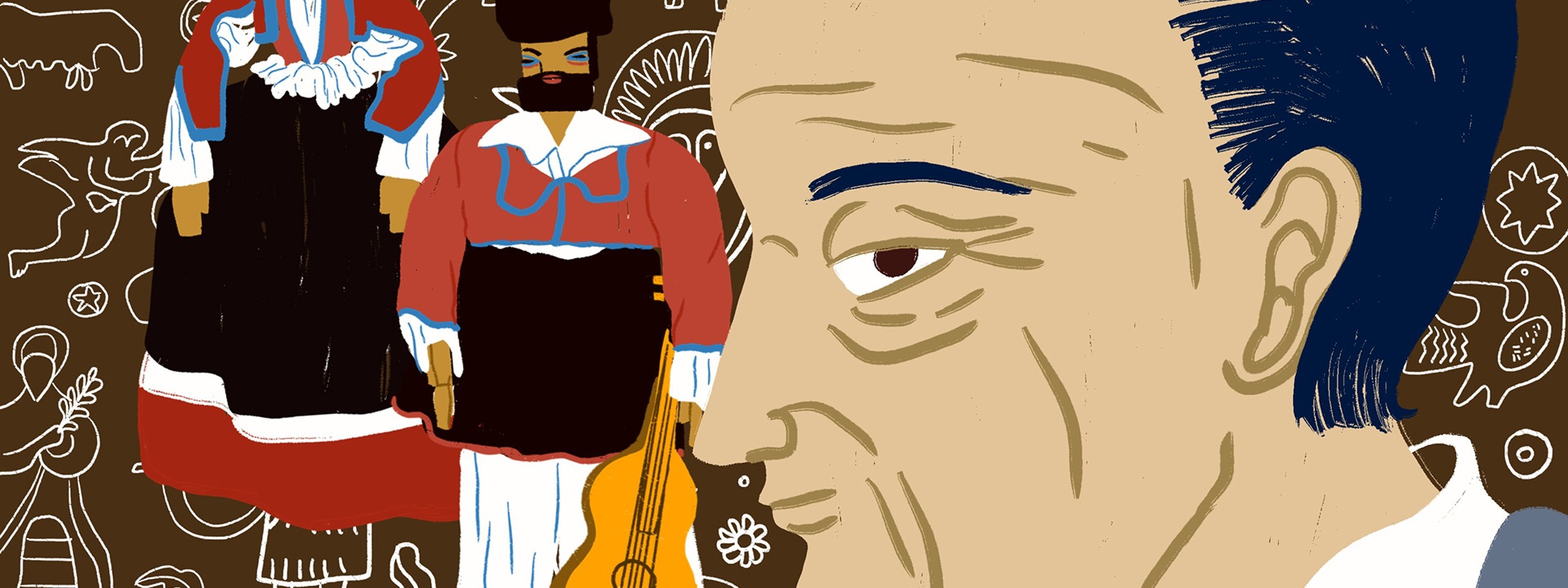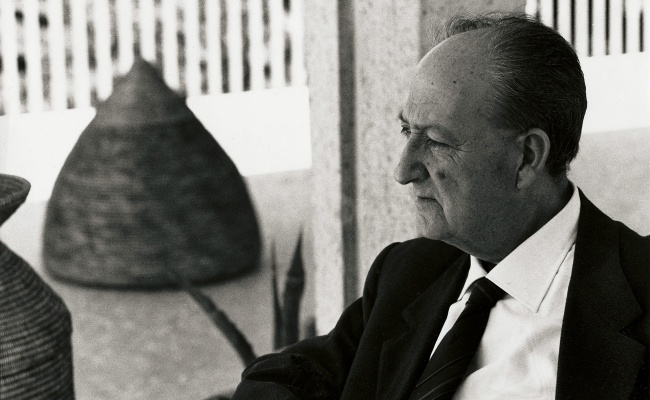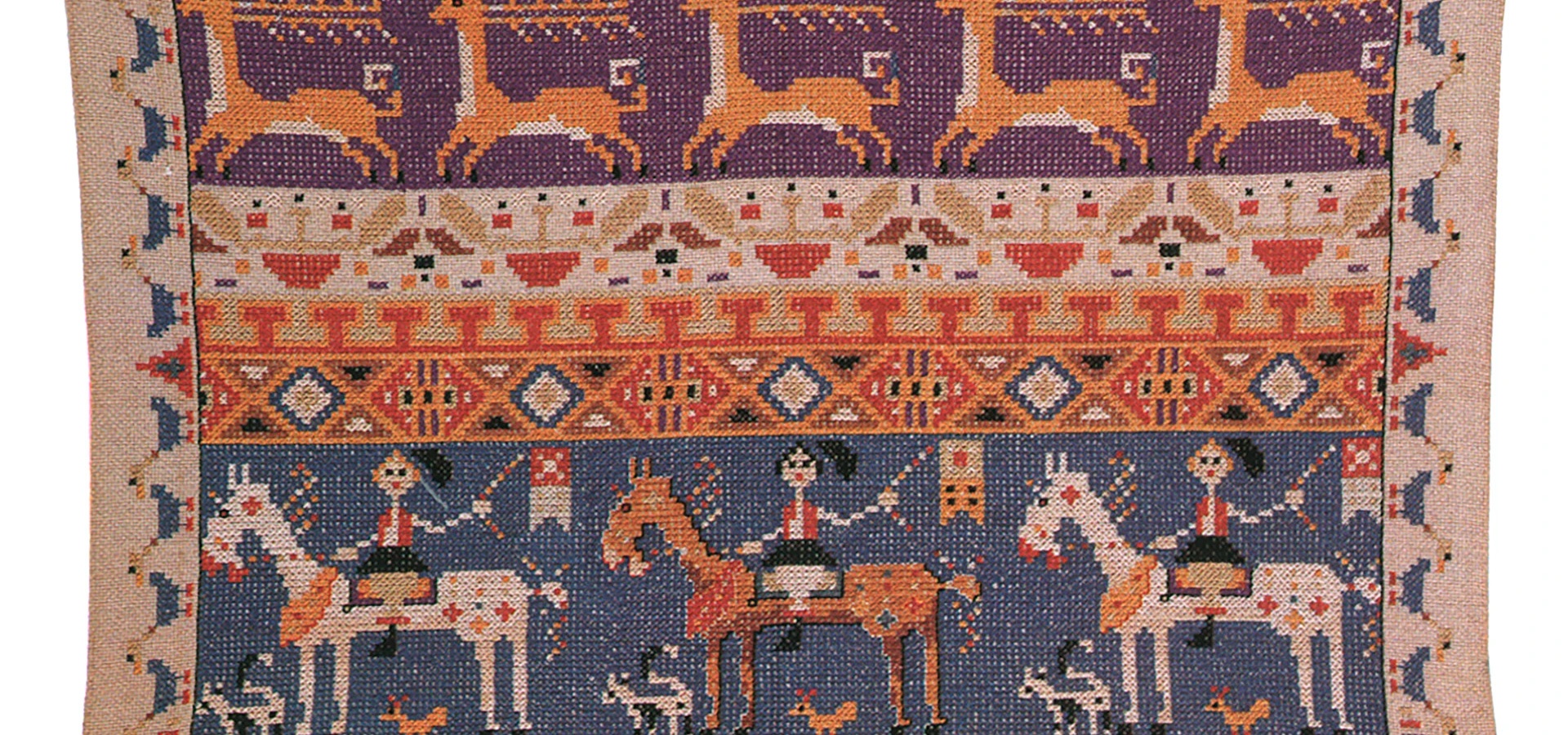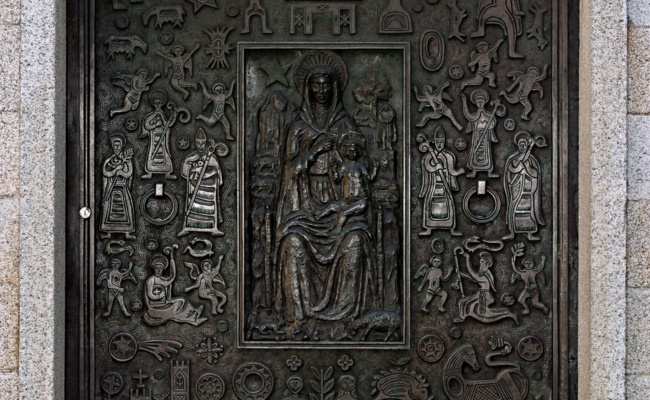Eugenio Tavolara (b. Sassari, 5 January 1901–d. Sassari, 13 January 1963) was an Italian sculptor, potter, illustrator and designer.
Eugenio Tavolara
Description
After earning his secondary school diploma in 1918 at the A. Lamarmora technical institute in Sassari, he moved to Cagliari to enrol in the Faculty of Engineering. He continued his studies until 1924, when he left university to work with Tosino Anfossi on designs for textiles, cushions, leather objects, accessories for the home and toys.
In 1925, he returned to Sassari and founded a company with Gavino Clemente, a famous furniture maker (Ditta Fratelli Clemente), to produce puppets he designed with Anfossi: carved and painted wooden toys, with fabric clothing, representing shepherds, farmers and women wearing traditional Sardinian costume.
He wound up the partnership with Clemente the following year and founded, with Anfossi, ATTE, specialised in the production of tapestries, leather objects and, most importantly, puppets, which were a huge success with collectors.
In August of that same year, Tavolara broke off his creative collaboration with Anfossi due to personal and stylistic differences and founded, in October, Casa ALBA to produce not just puppets but also furniture and accessories for the home.
During the last few months of the year, Tavolara’s work took a crucial turn, and the artist turned his attention to sculpture, creating wooden bas-reliefs of still lifes and religious subjects and statuettes of jazz musicians and athletes.
In the years that followed, he continued to display and win acclaim for his sculptures, participating in national and regional exhibitions. During the post war period, he expanded his activity to include art criticism and organising exhibitions.
In the 1950s, the period when he was appointed director of ISOLA (Istituto Sardo Organizzazione Lavoro Artigiano - the Sardinian Institute for the Organisation of Artisan Labour), he worked with the architect Ubaldo Badas to update Sardinian craft, organising exhibitions and training courses and promoting the island’s craft traditions. He provided plans and designs for furniture, wooden objects, textiles, pottery and more, putting a modern spin on Sardinia’s traditional motifs.
 Nuorese Cultural District
Nuorese Cultural District


